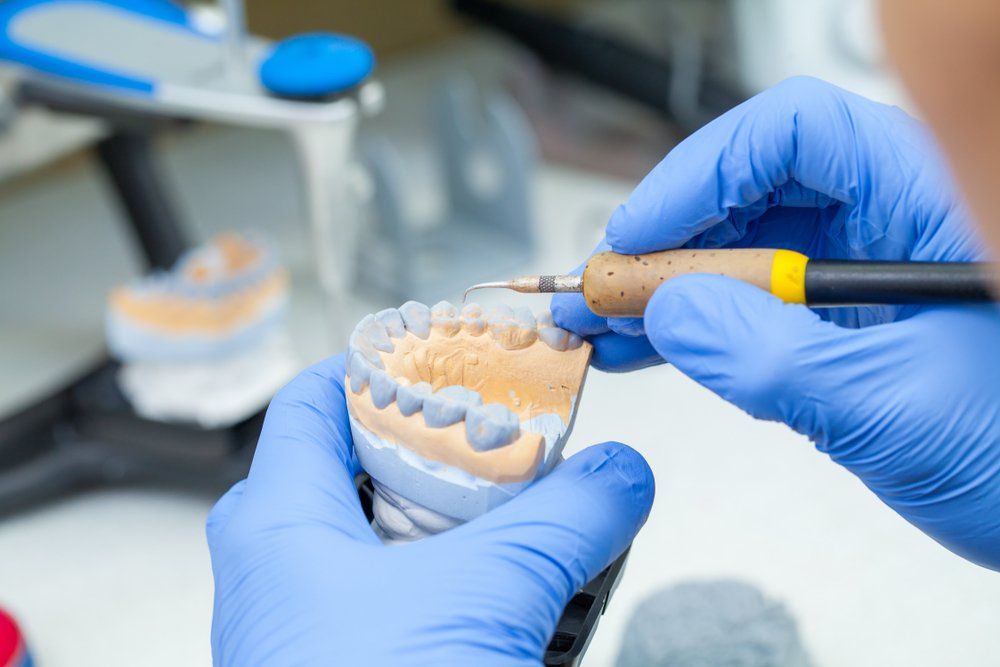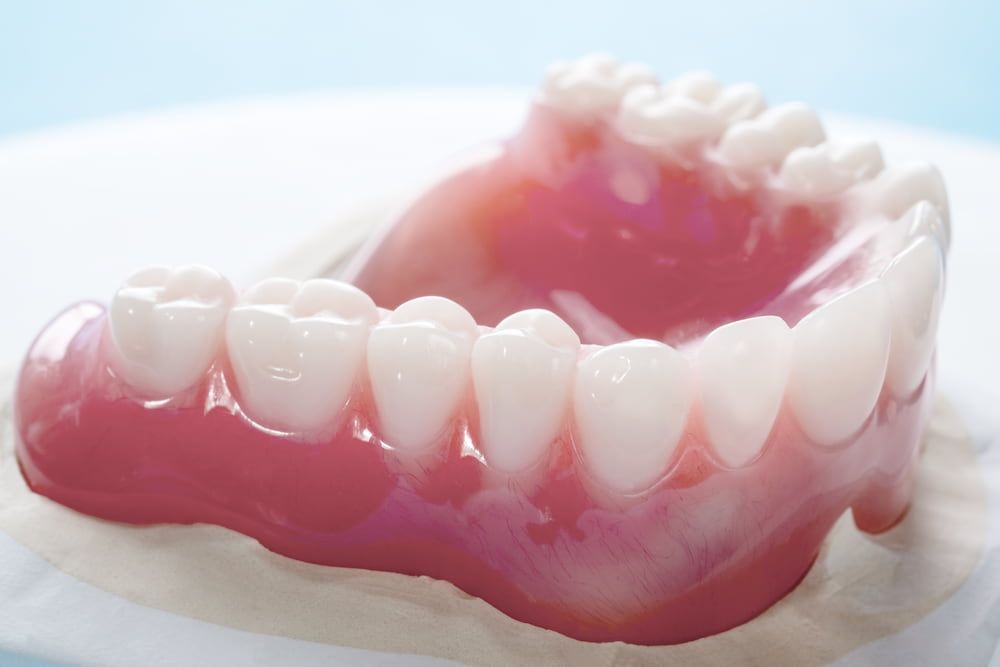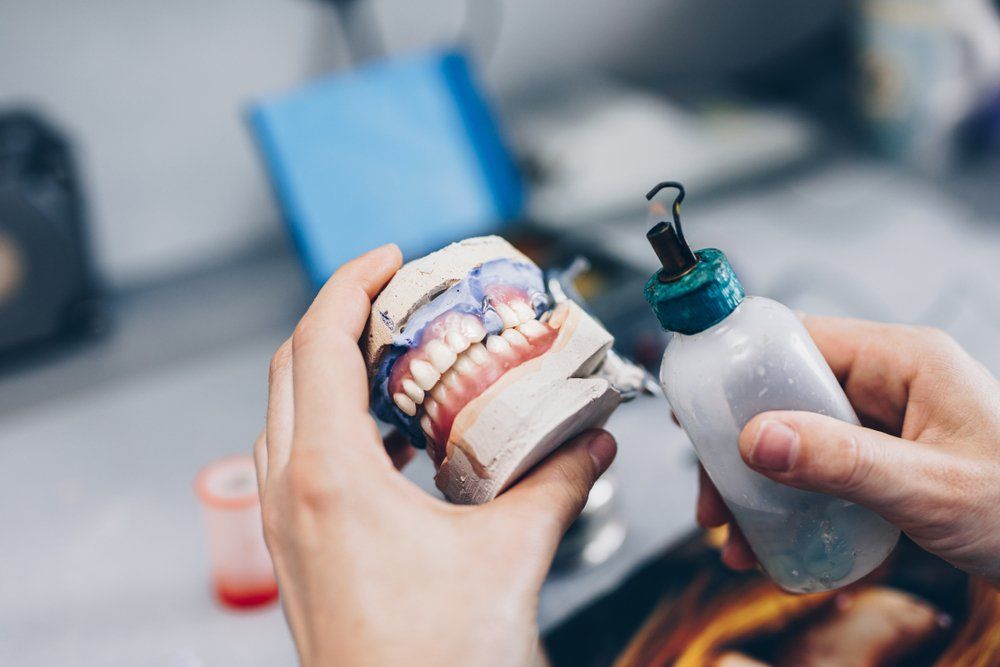How Often Should You Reline Your Dentures? Signs It’s Time for an Update
Wearing dentures brings freedom to eat, speak, and smile confidently. But if they don’t fit like they used to, you might wonder whether it’s time for an update. As the shape of your gums and jawbone changes over time, denture relines may help restore comfort and function without replacing the entire denture.
This guide explores why denture relines on the Sunshine Coast are essential to long-term oral care, how often they’re typically needed, and what signs might suggest your dentures no longer fit properly. We’ll also explain what happens during a reline appointment and how to incorporate relines into your routine denture care.
The Role of Denture Relines in Maintaining Oral Health
Over time, natural changes in your mouth can cause dentures to lose their snug fit. These changes can occur gradually and are often a result of bone loss in the jaw or shrinking gum tissue. A denture reline involves reshaping the underside of your existing denture so it adapts more closely to your current gum structure.
There are two types of denture relines:
- A hard reline uses a more rigid material, usually processed in a lab. This method may offer extended durability and is generally used when the gums' shape significantly changes.
- A soft reline uses a more flexible material that’s typically done chairside. It’s often selected when gums are sensitive or sore, providing a more delicate surface against oral tissues.
Why You Shouldn’t Delay a Reline
Some denture wearers get used to discomfort and think it’s normal—but ignoring the signs of a poor fit can lead to more persistent problems. Over time, ill-fitting dentures can cause ongoing irritation and pressure on delicate gum tissues.
These issues may contribute to more complex oral health concerns when left unaddressed. Here are some possible consequences of waiting too long to reline your dentures:
- The constant rubbing from a loose denture can create sore spots or ulceration in the gums.
- Food particles can easily become trapped under loose dentures, increasing the risk of inflammation or infection.
- Uneven pressure on the jawbone may accelerate bone shrinkage, making future adjustments more complex.
How Often Should You Reline Your Dentures?
While every individual is different, most people benefit from a denture relining every one to two years. However, several factors can influence how often you may need one.
To understand how your personal situation affects the timing of your next reline, consider the following:
- Changes in oral anatomy: Natural bone loss or gum shrinkage over time can alter the shape of your mouth, requiring more frequent adjustments.
- Underlying health conditions: Medical issues like osteoporosis or diabetes may affect the condition of oral tissues.
- Wear & tear: Frequent denture use, particularly for those who grind or clench, may cause the base of the denture to become uneven sooner.
- Initial denture fit:
If the denture didn’t closely match your gum contours, relines may be needed earlier to improve comfort.
Signs Your Dentures May Need a Relin
If you’ve been wearing the same dentures for a while, you might notice subtle changes in how they feel and function. These changes can develop gradually, making them easy to overlook at first.
Some clear signs may indicate that it’s time to consider denture relines on the Sunshine Coast:
- Loose or unstable fit: If your denture shifts or rocks while talking or eating, this may mean the underlying shape of your gums has changed.
- Gum soreness or irritation: Persistent tenderness or red spots on your gums may result from pressure points caused by an ill-fitting denture.
- Difficulty with chewing: When your dentures don’t sit properly, chewing efficiency can decrease, and you may start avoiding certain foods.
- Speech changes: A poor fit can make it harder to pronounce certain words or sounds clearly.
- Frequent food trapping: Gaps between the denture and gums can allow food to get trapped, increasing the likelihood of irritation.
What to Expect During a Denture Reline Appointment
It can be helpful to know what to expect if you haven't had a reline before. The reline process typically starts with a consultation and examination of your current denture and the condition of your oral tissues.
Here’s a basic outline of what usually happens during a denture reline:
- Assessment: The dental practitioner checks how your denture fits and whether relining is the most suitable approach.
- Impression taking: A mould of your gums is taken to help reshape the denture base to your current anatomy.
- Adjustment: For soft relines, the material may be applied directly in the clinic. For hard relines, your denture is usually sent to a dental lab, which may take longer.
- Refitting: Once relined, the denture is checked again for comfort and stability. Minor adjustments may be made on the spot.
Making Denture Relines Part of Your Long-Term Care Plan
Dentures play a central role in daily life for many people, but maintaining them involves more than just cleaning. As your mouth changes, keeping your denture aligned with those changes is part of supporting your comfort.
To keep your dentures in good condition, consider the following as part of your ongoing care:
- Schedule routine check-ups to assess the fit and function of your denture, even if no issues are currently present.
- Discuss reline frequency with your dental practitioner, especially after major life events like weight changes or surgery that may affect your gums.
- Store your dentures properly when not in use, and avoid exposing them to extreme temperatures that could distort their shape.
- Avoid DIY adjustments at home—this can damage the base and make professional relining more difficult later on.
Ready to Refit? Let’s Talk Denture Relines
At The Denture Care Group Sunshine Coast, we’re here to help you keep your denture as comfortable and functional as possible. If you’re noticing changes in how your denture fits—or if it’s simply been a while since your last reline—our denture reline service is available to help restore the fit and comfort you’re used to.
Whether you’ve had your dentures for years or are new to wearing them, we invite you to contact us via our contact page or give us a call to book a consultation for denture relines. Let’s help you feel more supported in your day-to-day life.







